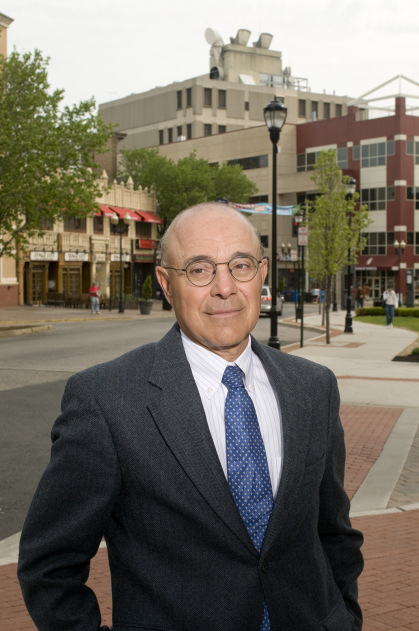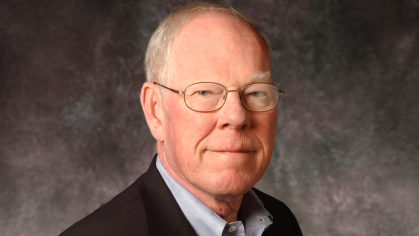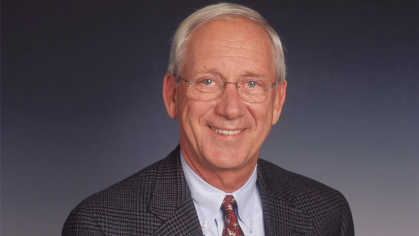Celebrating the Life and Legacy of Joseph Seneca

Rutgers will celebrate the life of Joseph James Seneca, University Professor of economics emeritus and former vice president of academic affairs at Rutgers University whose research on the New Jersey economy spanned five decades, during a ceremony on Sunday, Dec. 12. Seneca died Nov. 27, 2020, at 76 after a long battle with cancer.
Seneca’s career at Rutgers began in 1967, when he joined Rutgers University-New Brunswick directly from graduate school and eventually served as chair of the economics department. Throughout his time at the university, Seneca touched the lives of thousands of students and influenced New Jersey economic policy through high-profile research, receiving numerous awards for exemplary teaching and public service.
Seneca also served as vice president for academic affairs at Rutgers from 1991 to 2003. Under his leadership, he helped steer the university through a difficult period that included severe cuts in state funding. He finished his career at Rutgers as a University Professor, one of the highest professorial ranks at the university.
Born in Philadelphia, Seneca received his undergraduate degree in economics, Phi Beta Kappa, from the University of Pennsylvania, followed by a Ph.D. in economics. There he met Rosalind, a British fellow student who became his wife of 50 years.
He published over 150 articles, reports and books. Two of his most recent books were published by the Rutgers University Press: America’s Demographic Tapestry and New Jersey’s Postsuburban Economy.
"Joe was a true multidimensional professional,’’ James W. Hughes, University Professor and dean emeritus of Rutgers University’s Edward J. Bloustein School of Planning and Public Policy and a longtime collaborator with Seneca, said last year.
“He was a crucial and steadying administrative influence at Old Queens during some of the most difficult times in Rutgers history, yet he was simultaneously able to provide wise economic counsel to the political leadership in Trenton, pursue his scholarly research agenda and generously share his valuable time with Rutgers students and faculty. Very few individuals display such kindness or have such breadth and depth of commitment and service," Hughes said.
An avid bird watcher, Seneca traveled worldwide to pursue his passion. He could instantly identify almost any bird in North America by sight or song.
He was also a passionate fan of the Philadelphia Phillies and could often be found at pickup softball games in Madison, N.J., where he lived for many years. Seneca had been a multi-sport athlete, and he played baseball or softball his entire life. Although deeply modest, Seneca’s one boast was that he had hit safely in seven consecutive decades, from the 1950s to the 2010s.
After retirement, Seneca and his wife moved to North Carolina to be near their son Matthew. He spent many summers sailing with his family at Westport Point, Mass. He was deeply devoted to Rosalind and Matthew, who survive him along with his sister Elaine.
The Rutgers University Foundation will host the event, Celebrating the Life of Dr. Joseph James Seneca at Winants Hall.
To join the gathering in remembrance of Seneca’s life and legacy, please register here by Dec. 3. Masks are required to be worn indoors.


